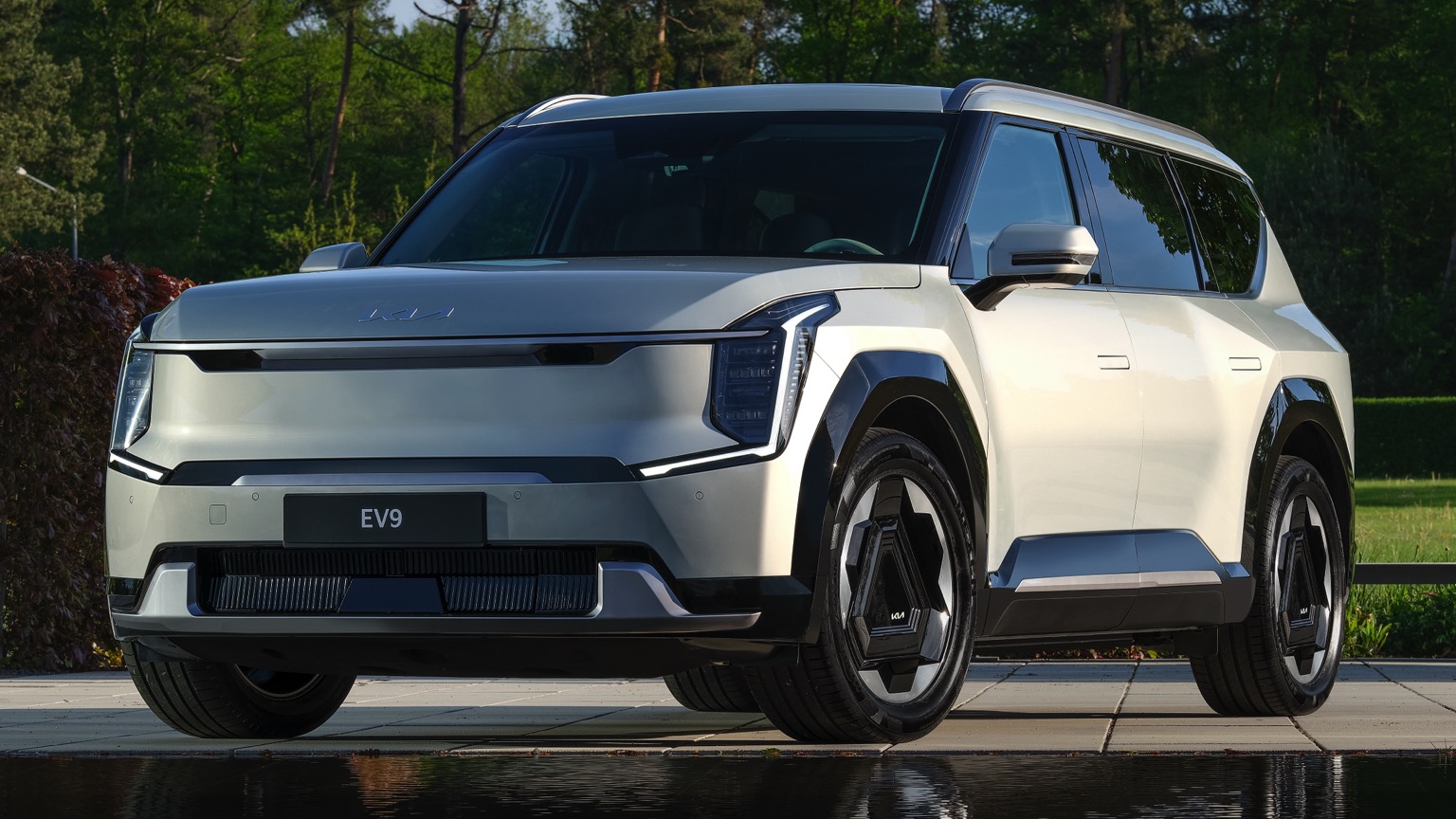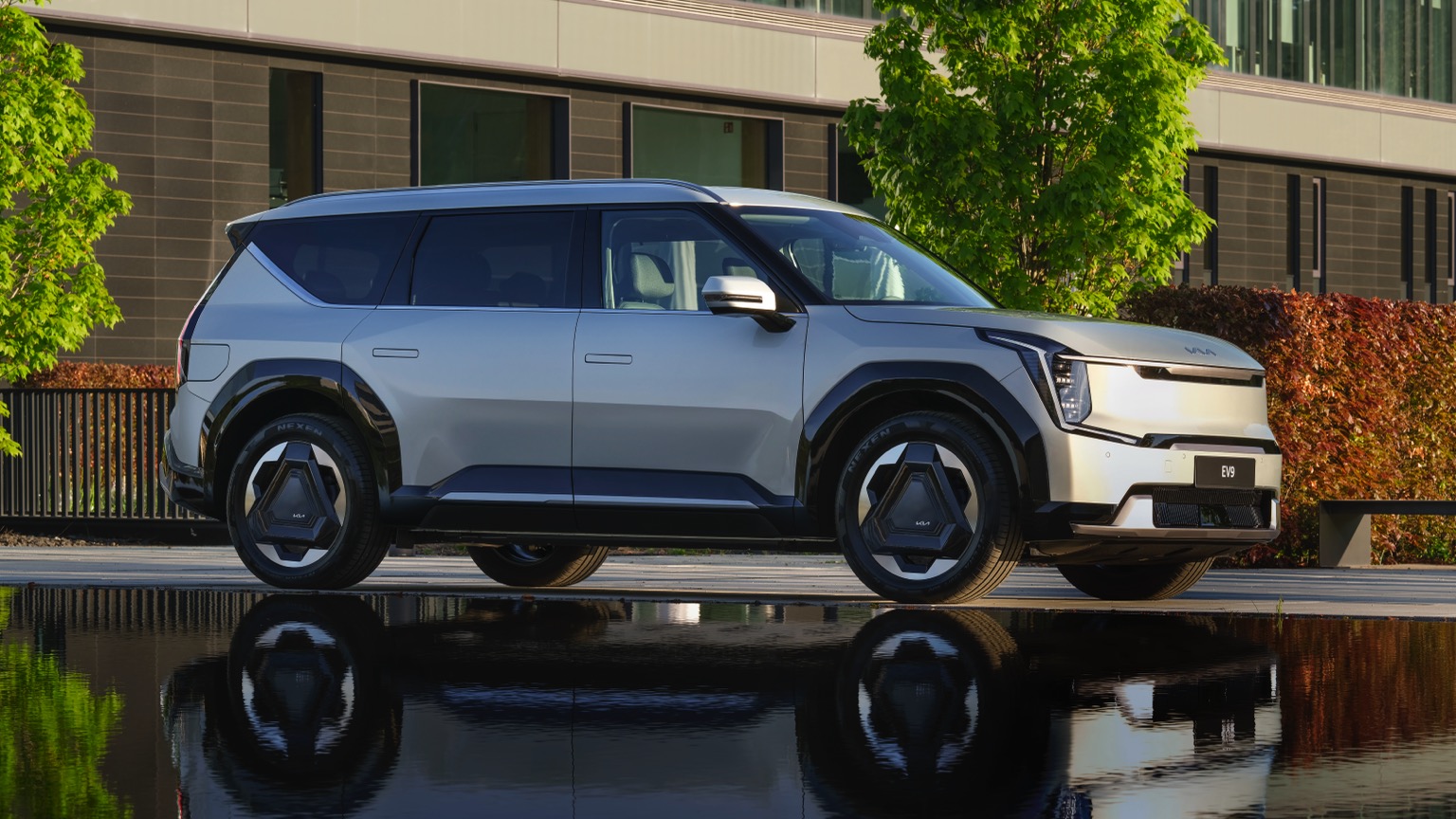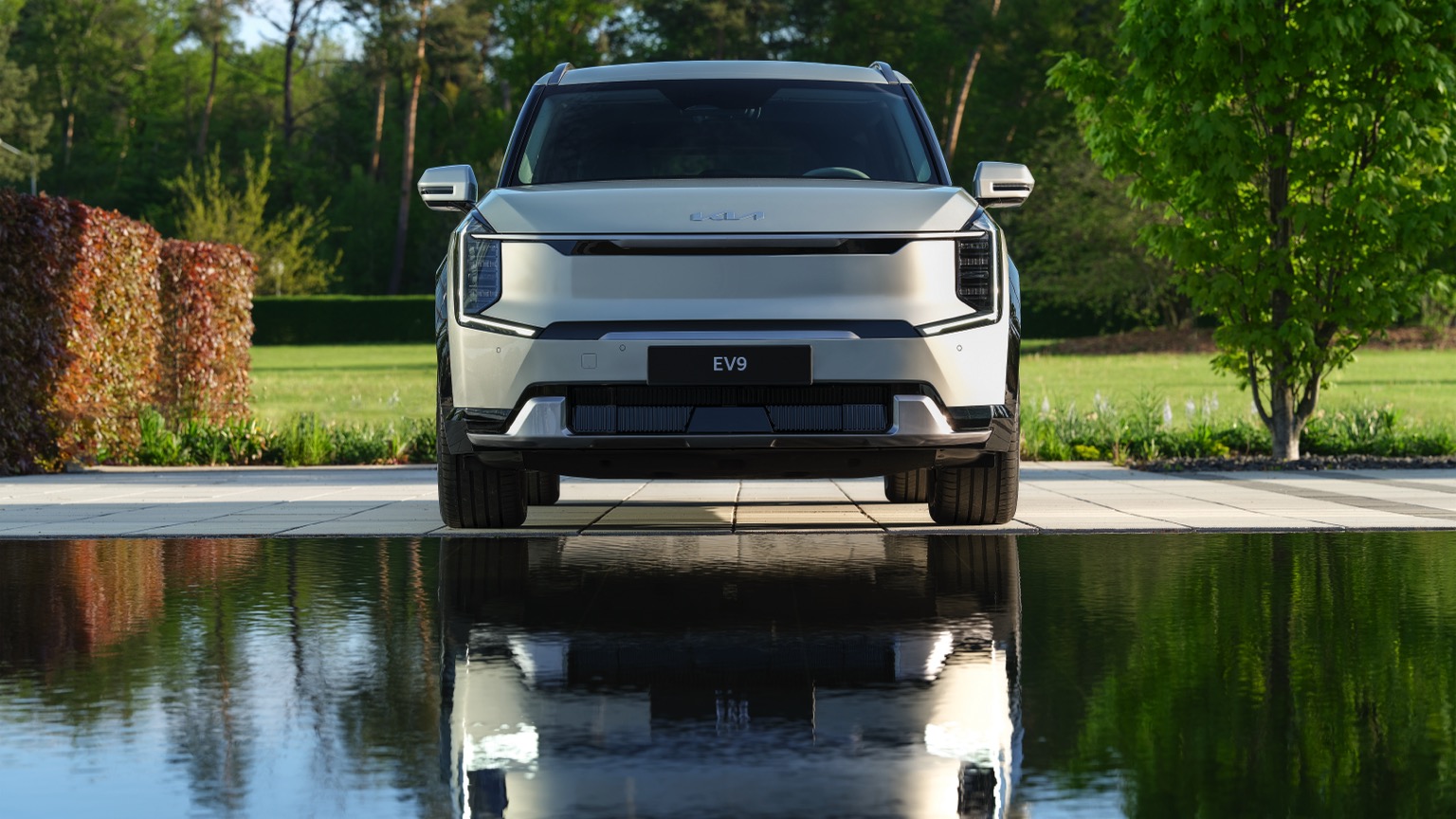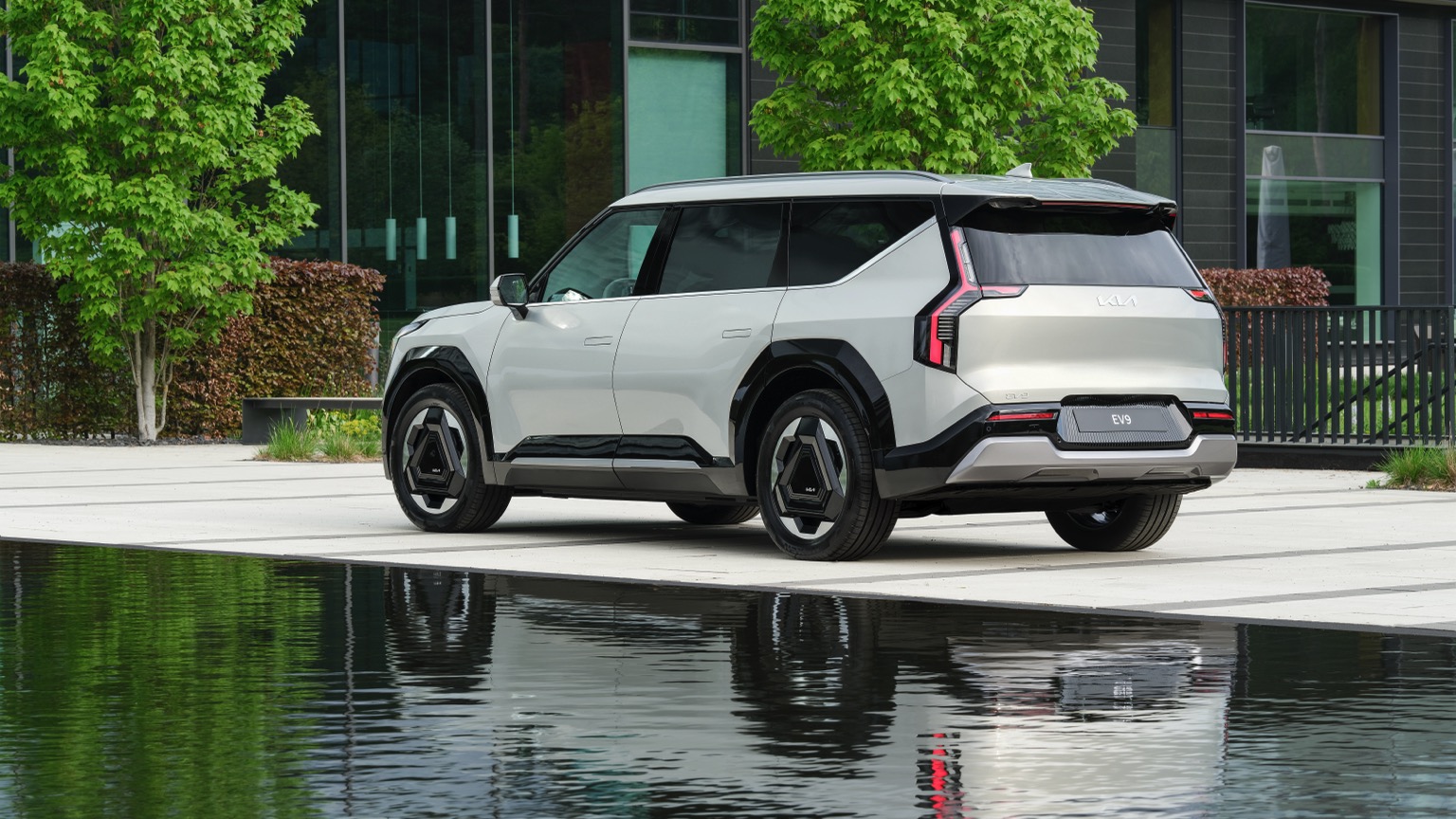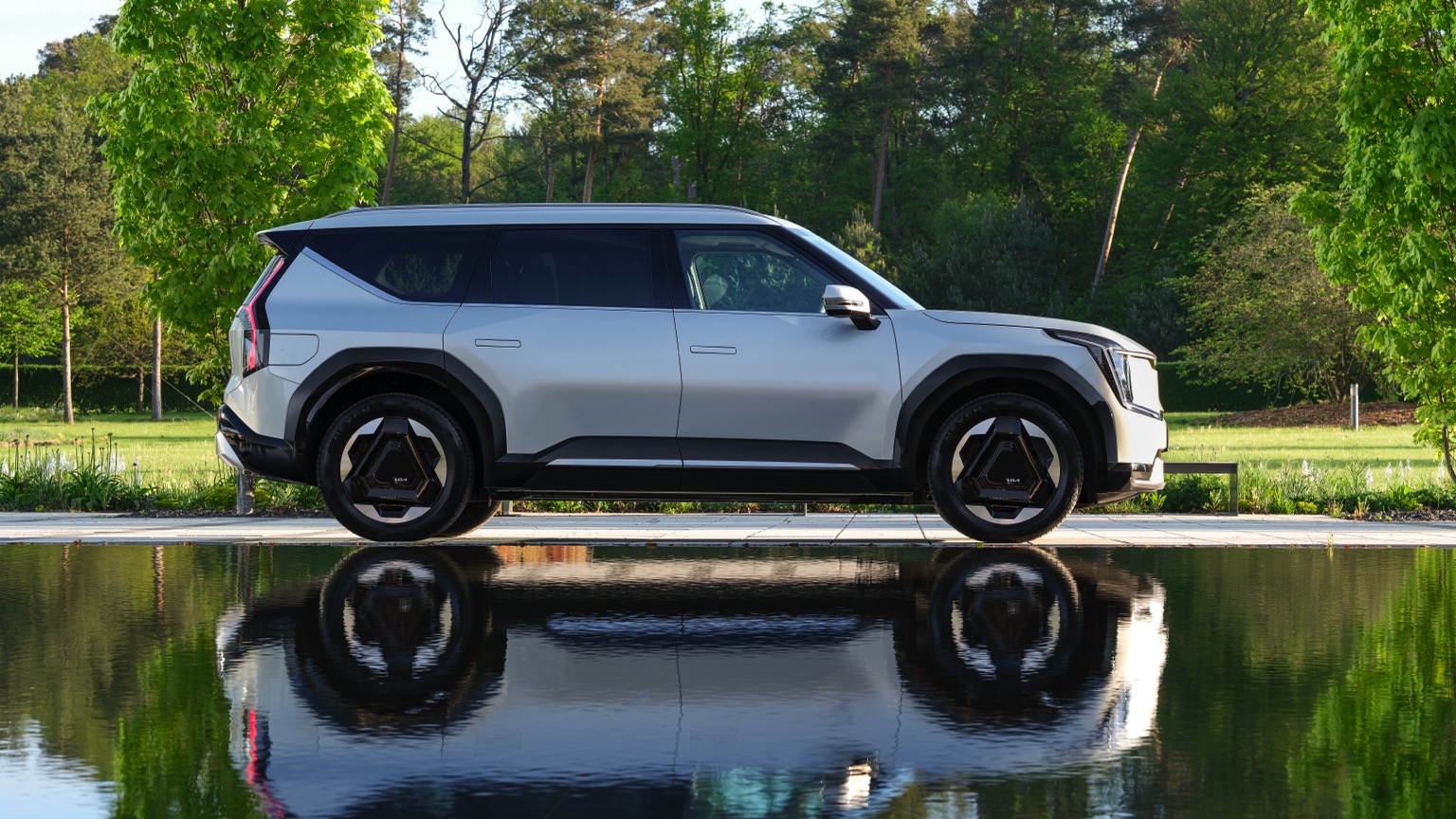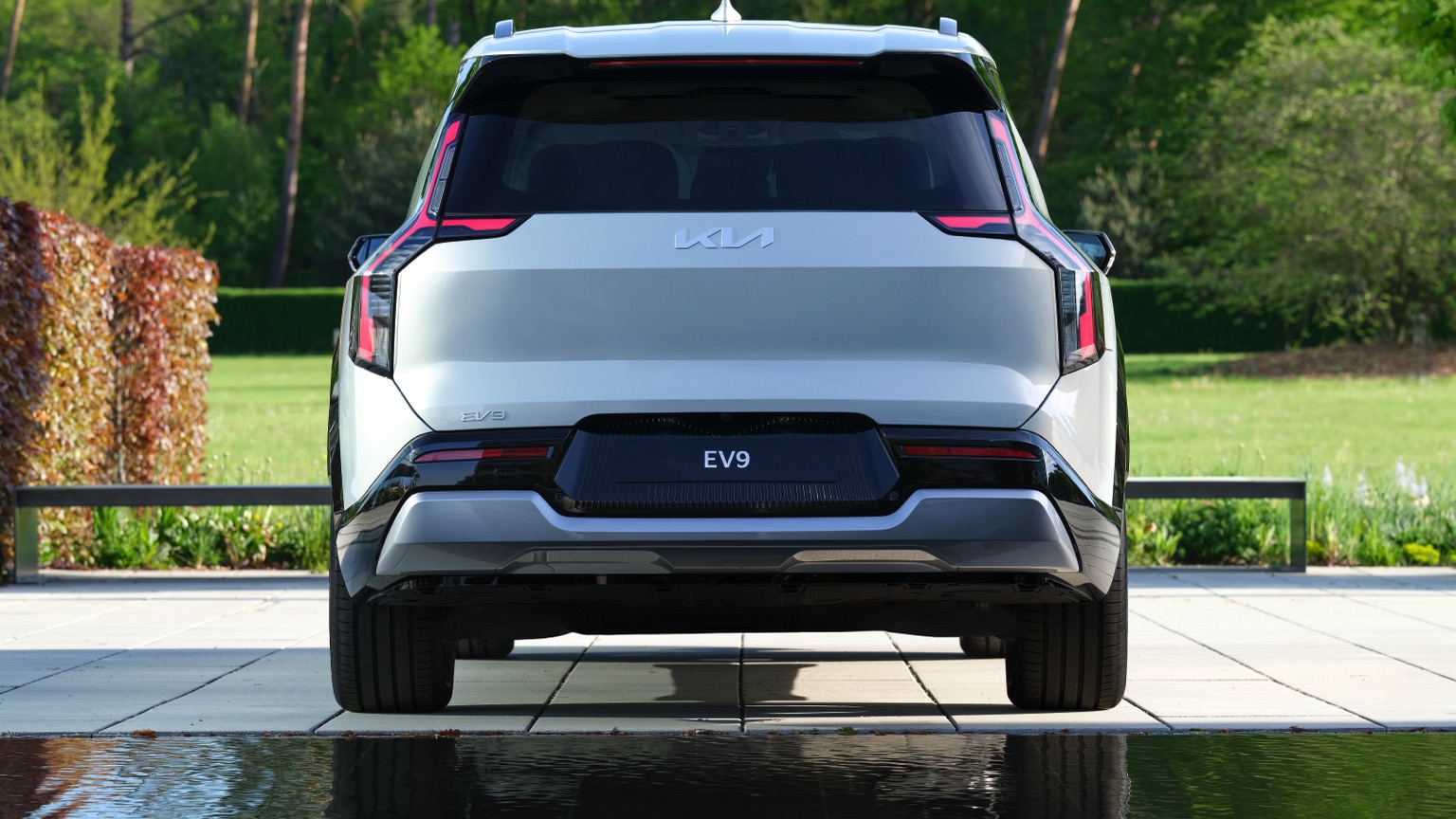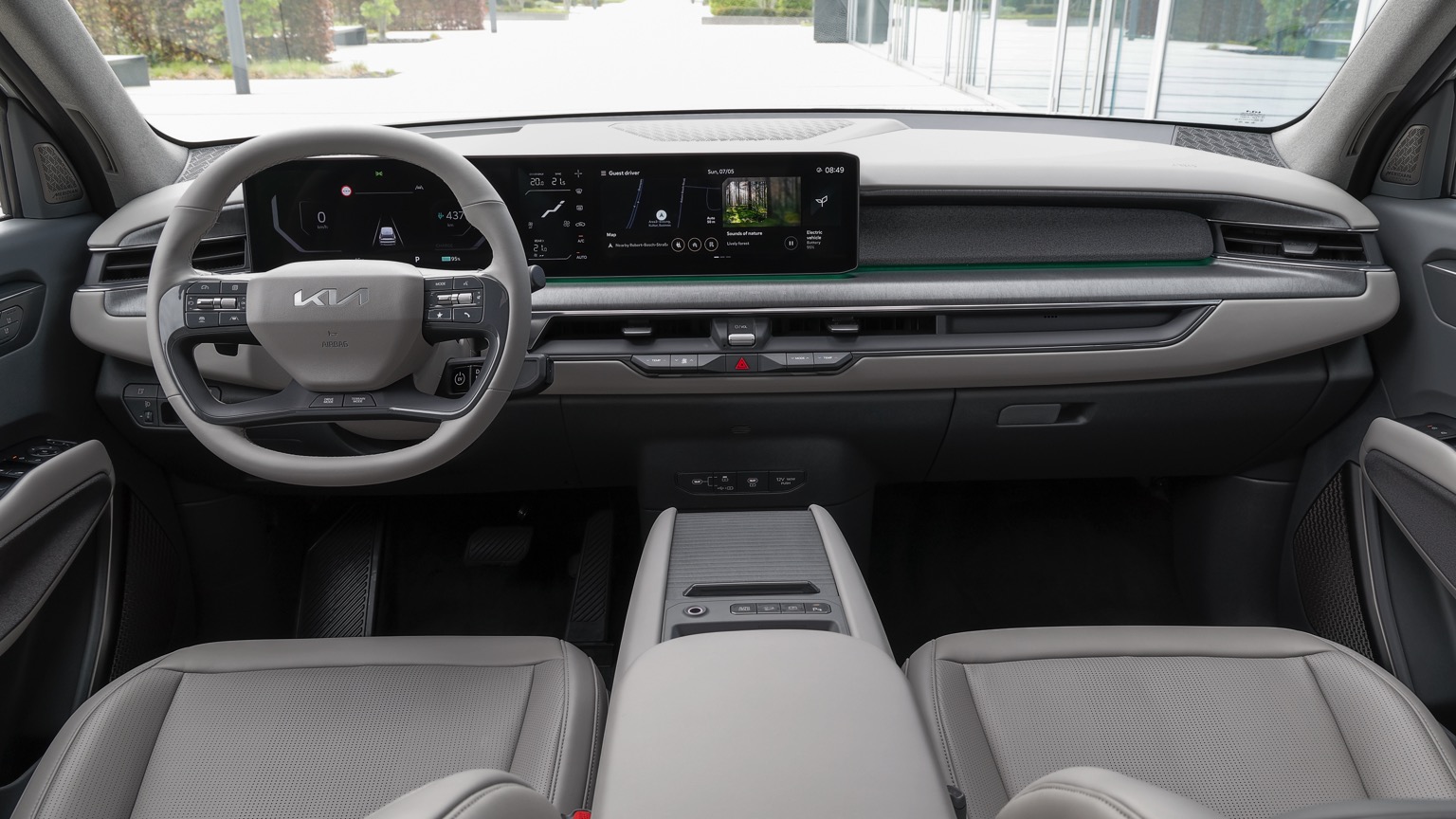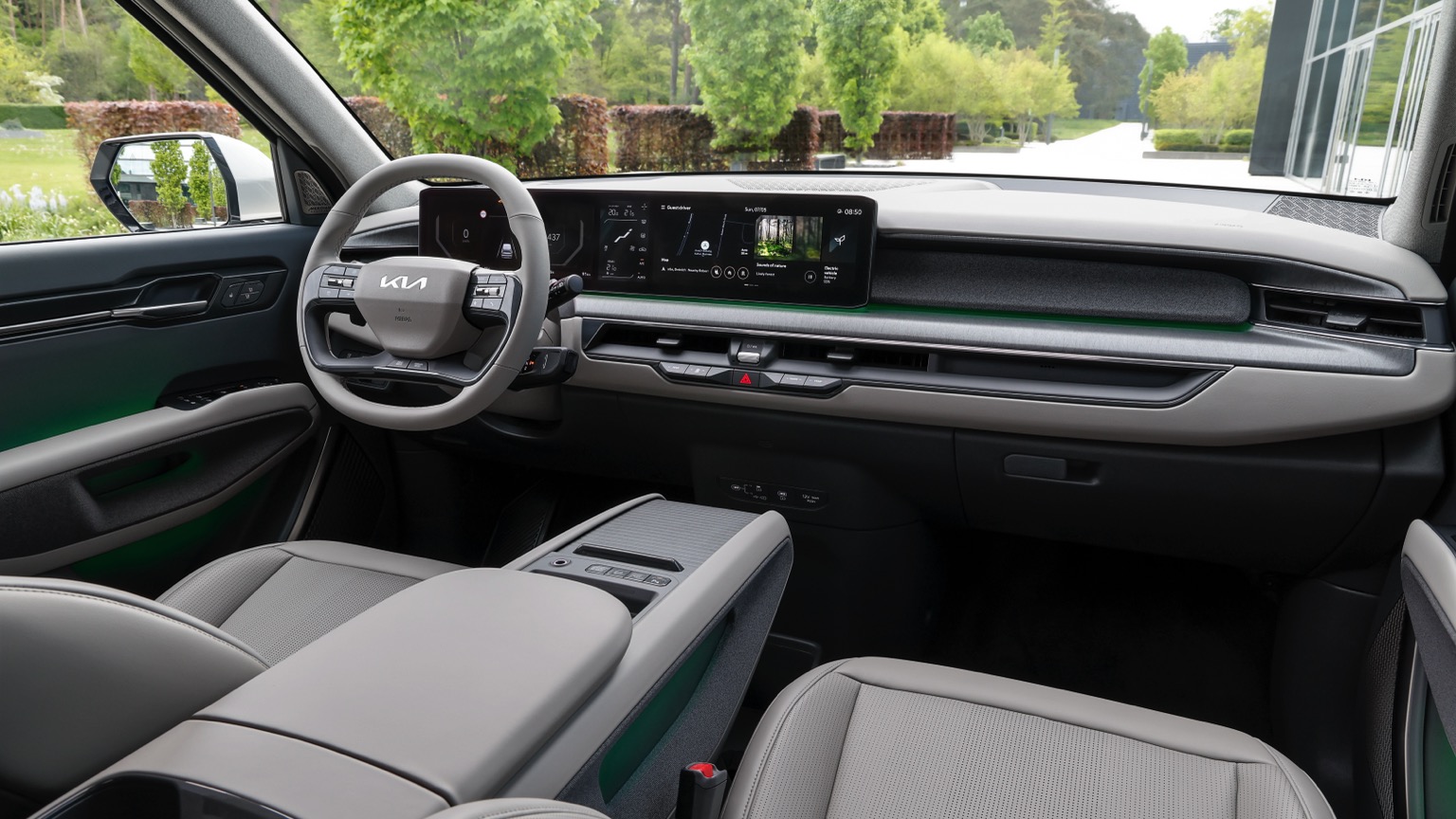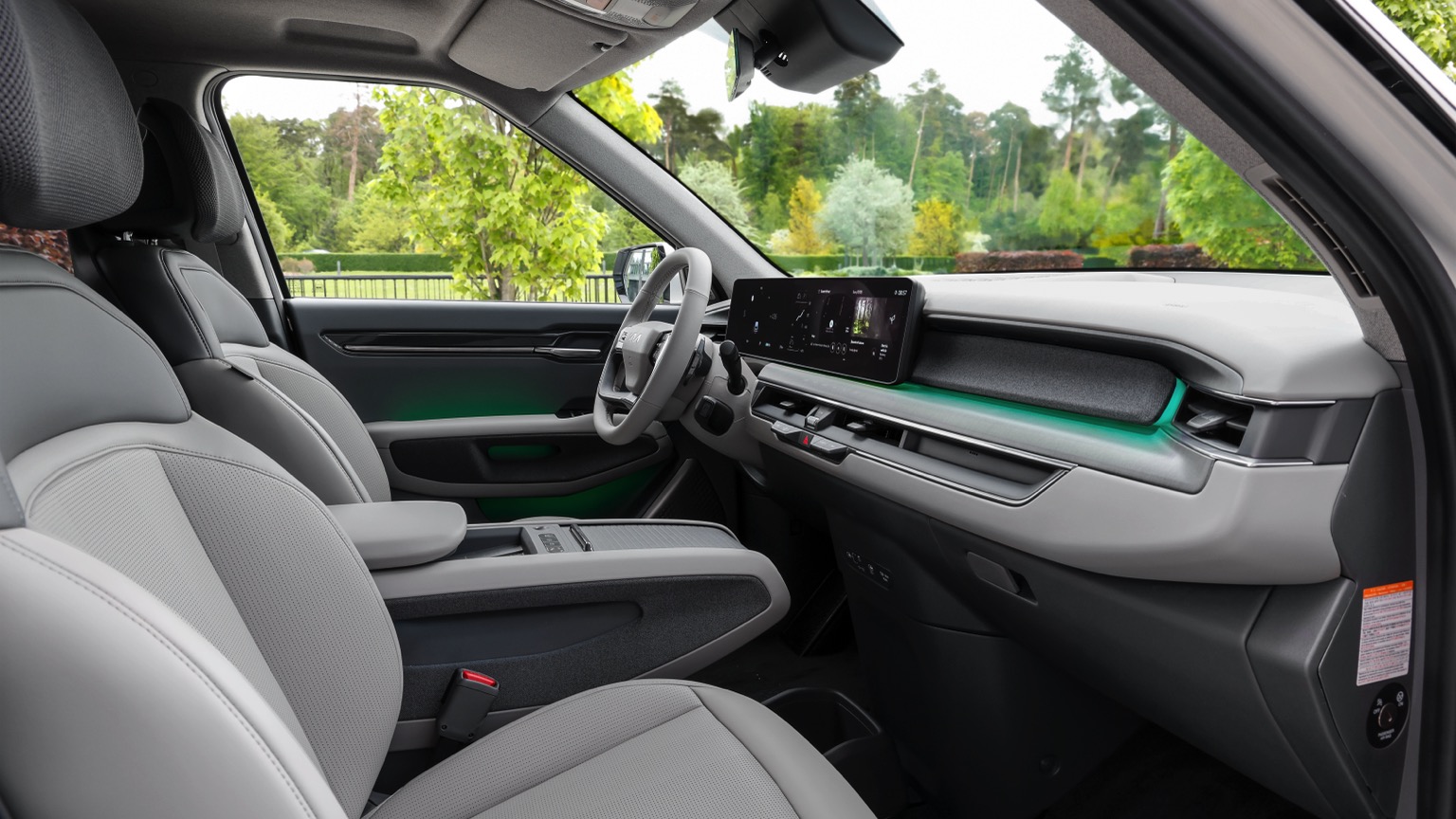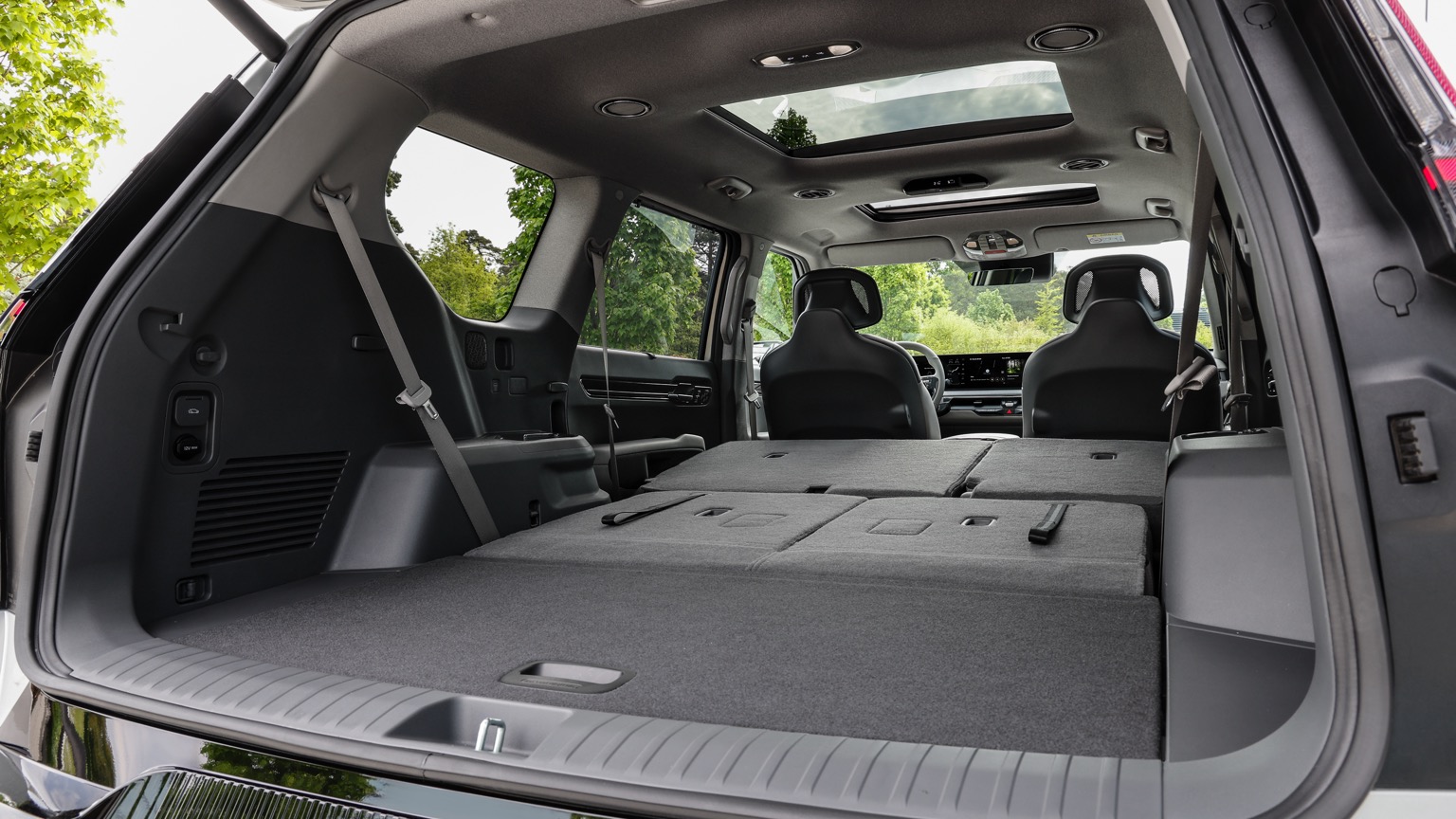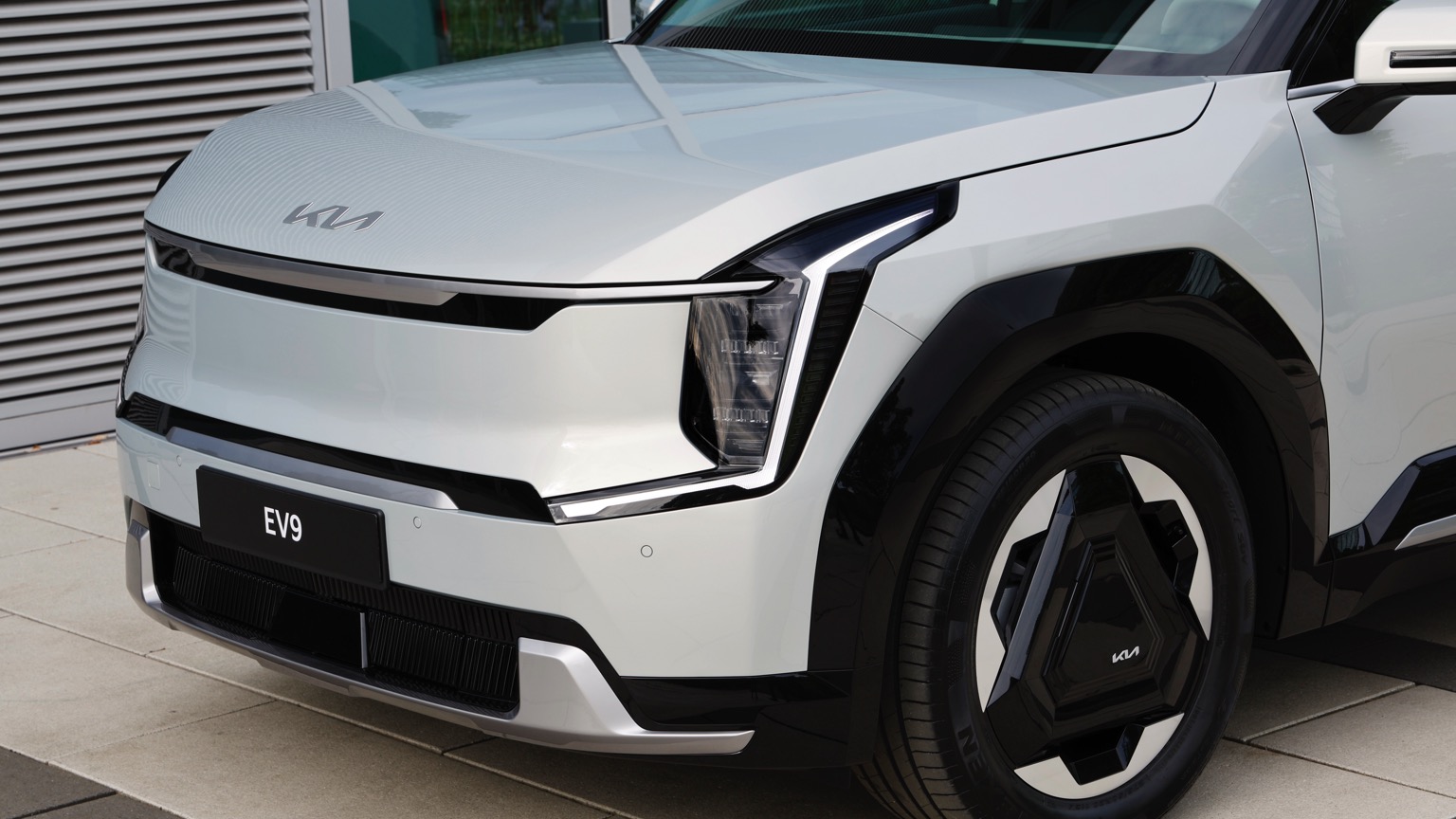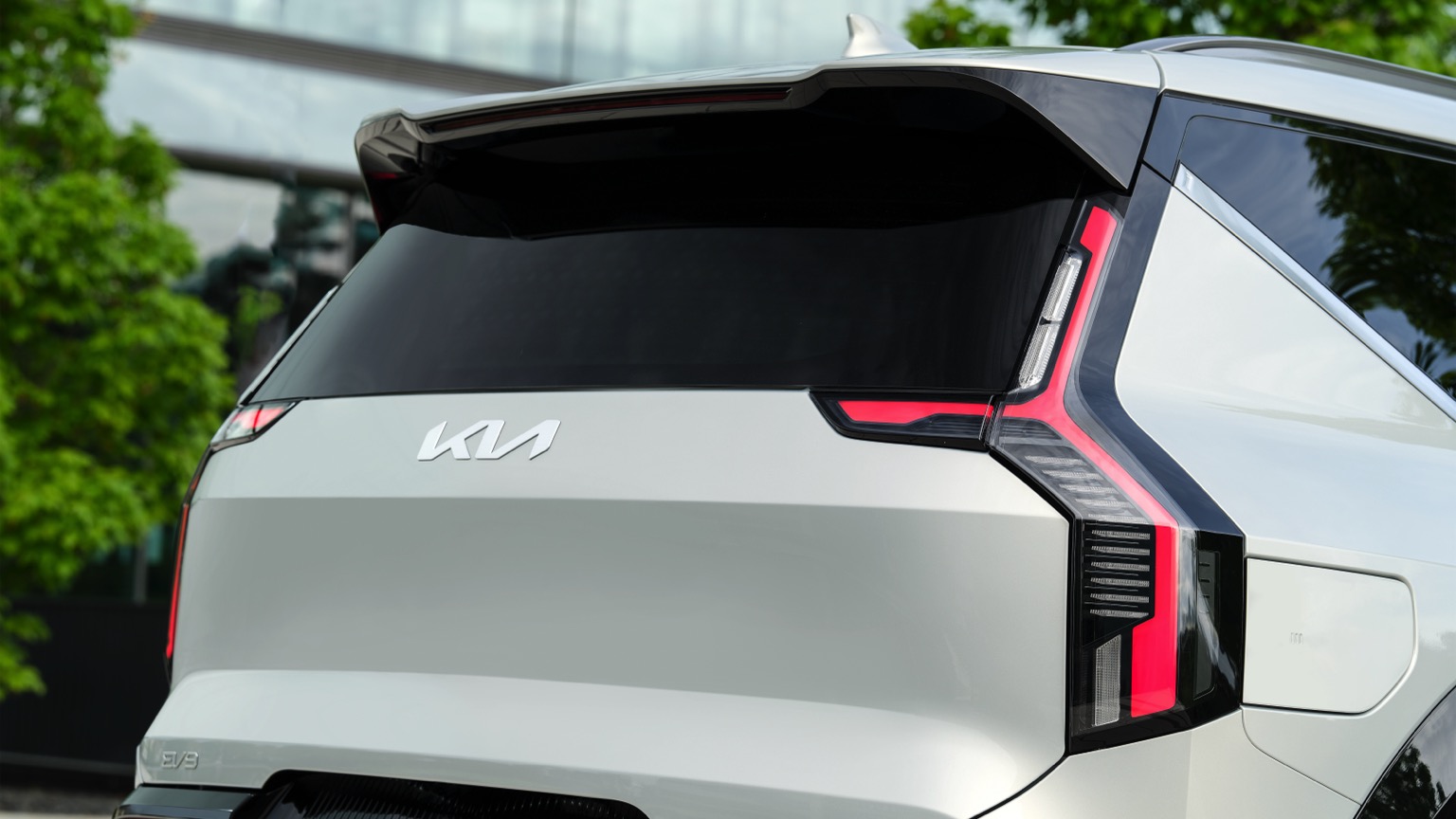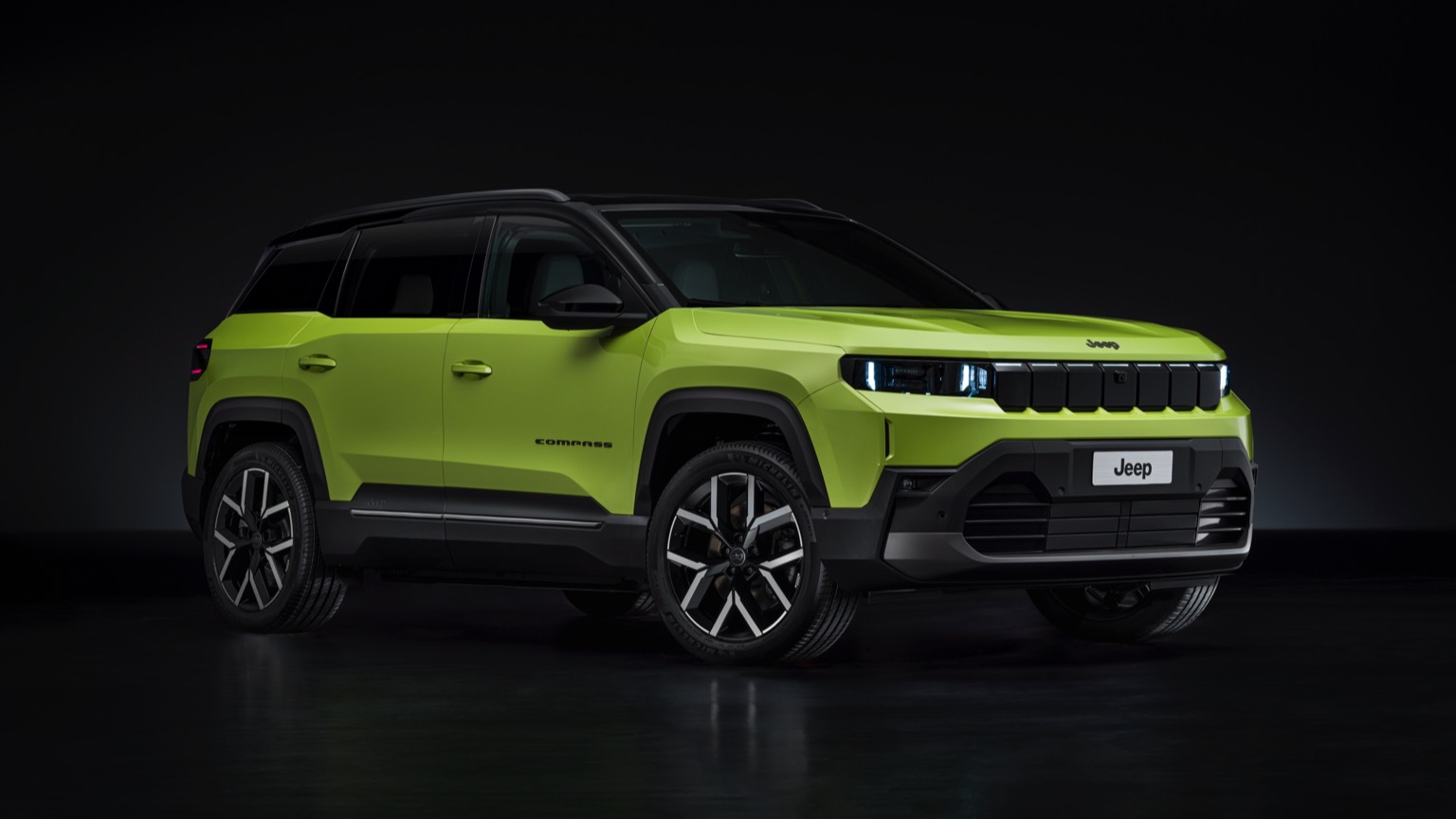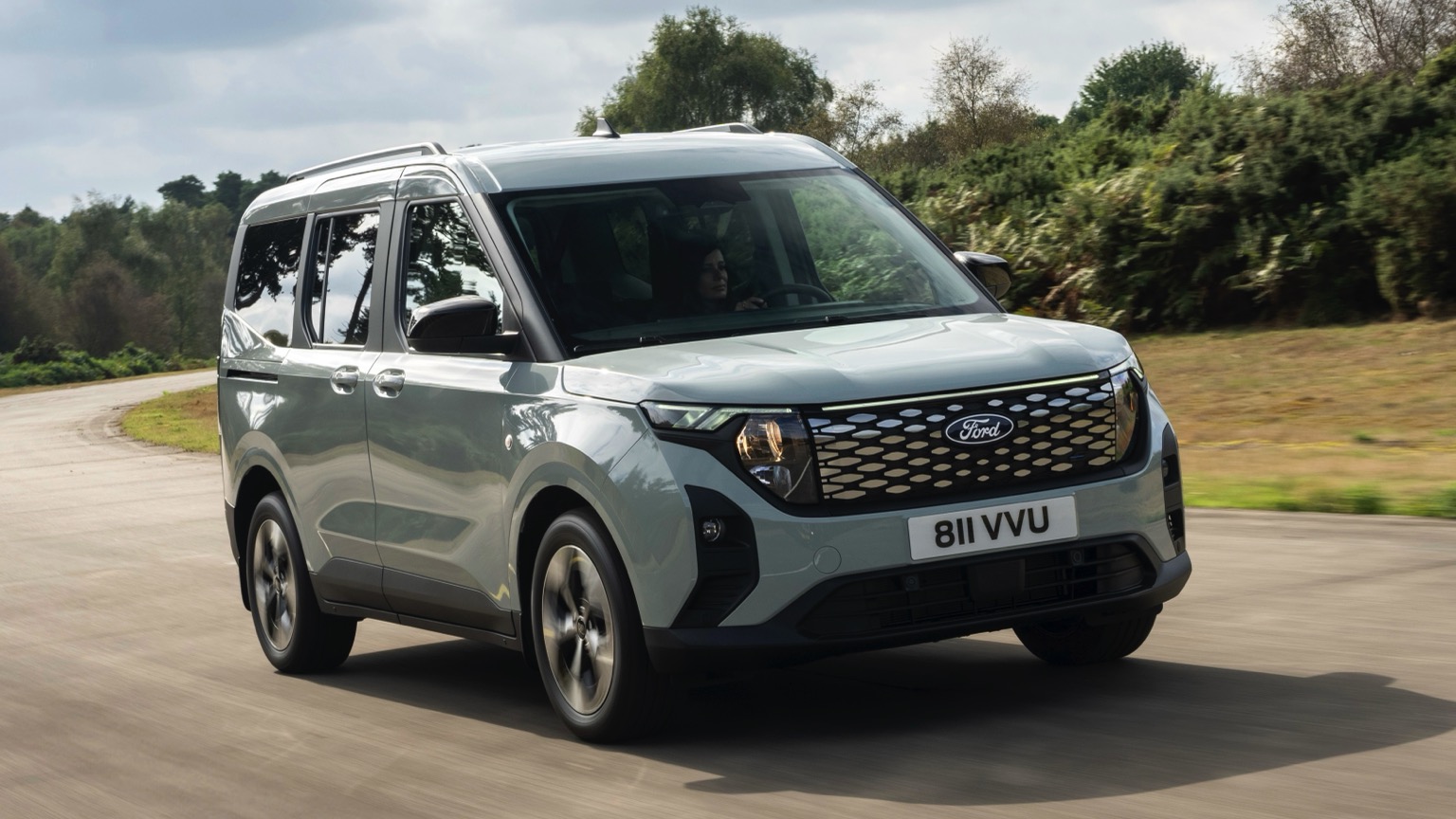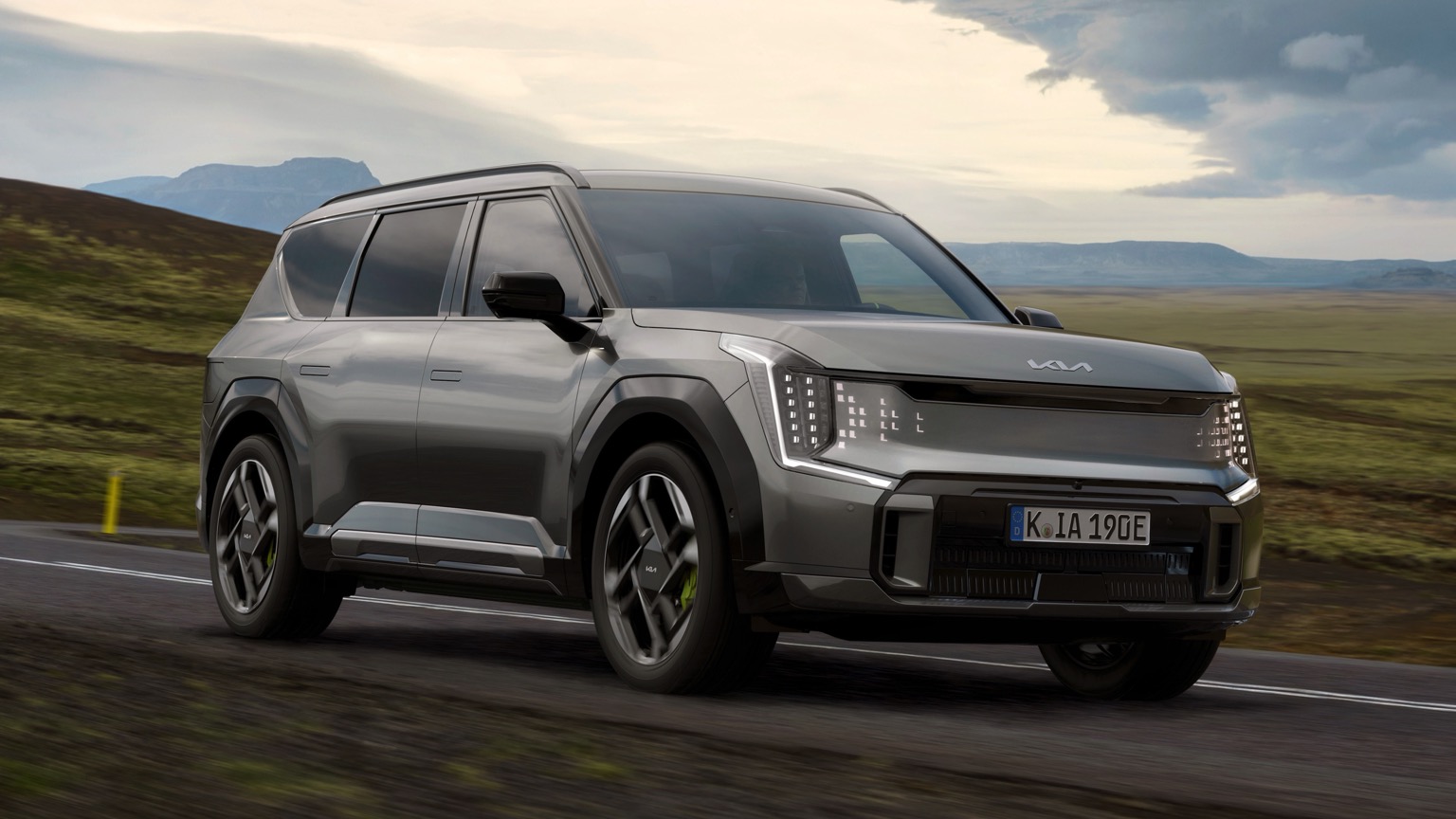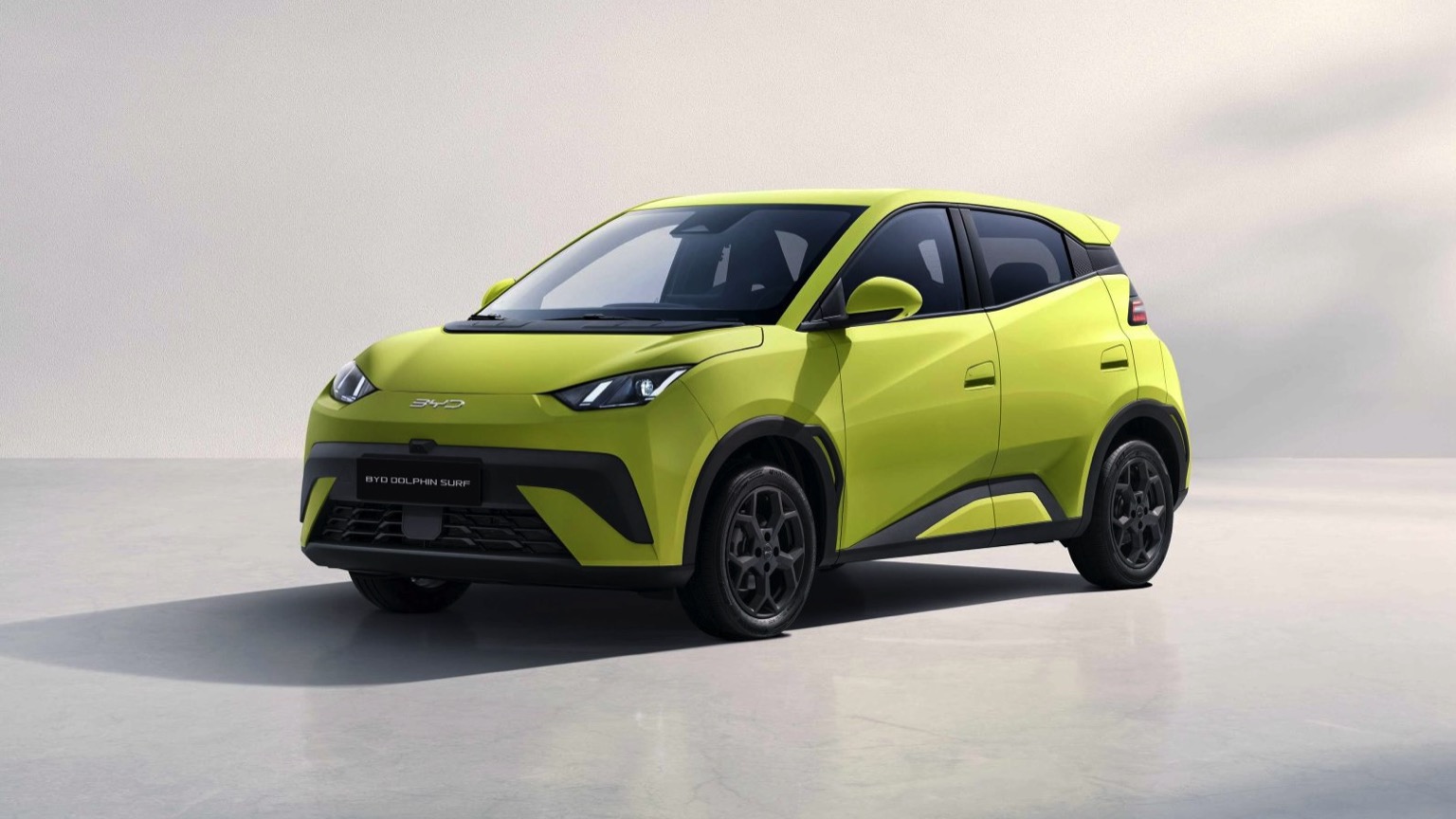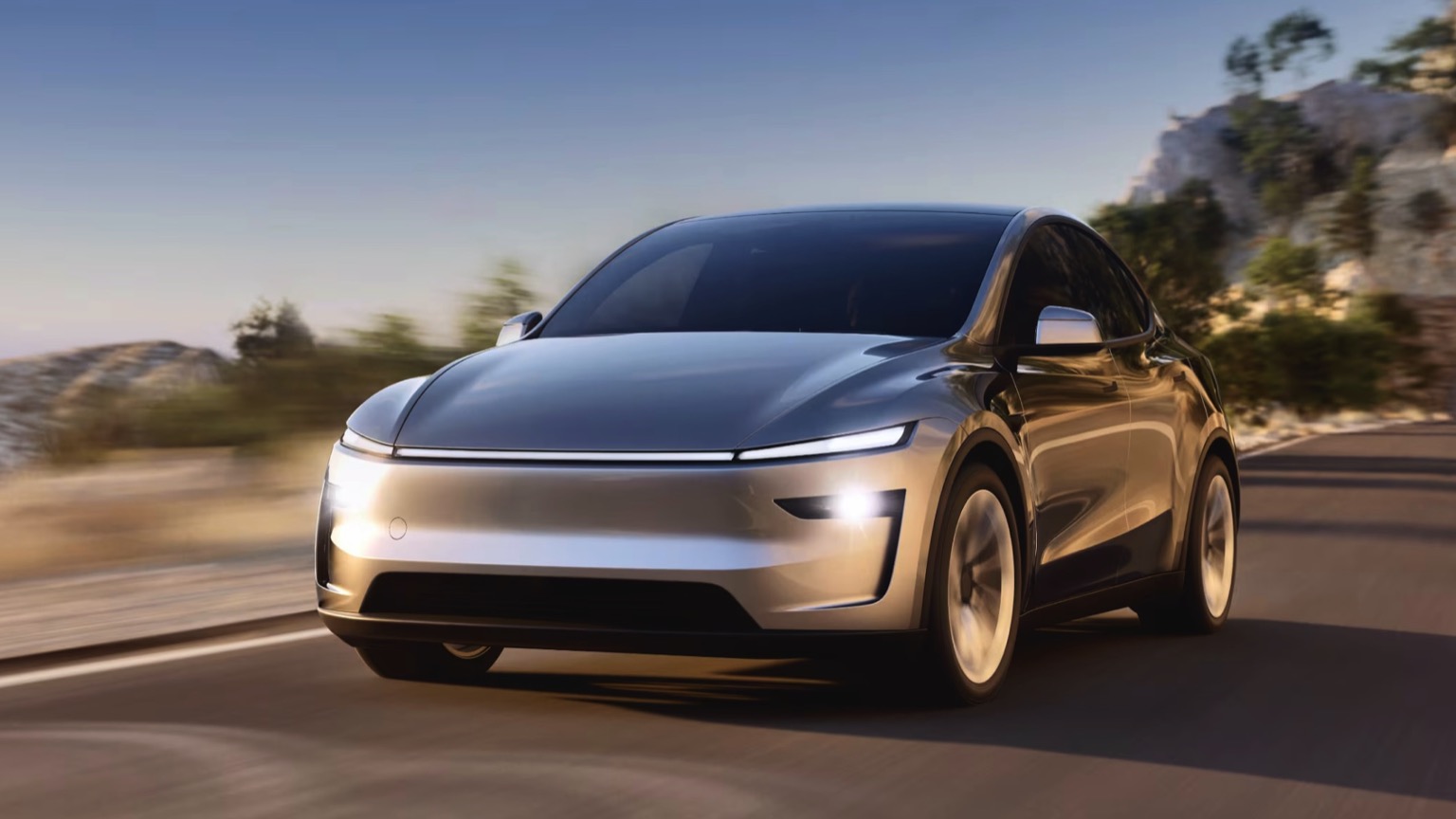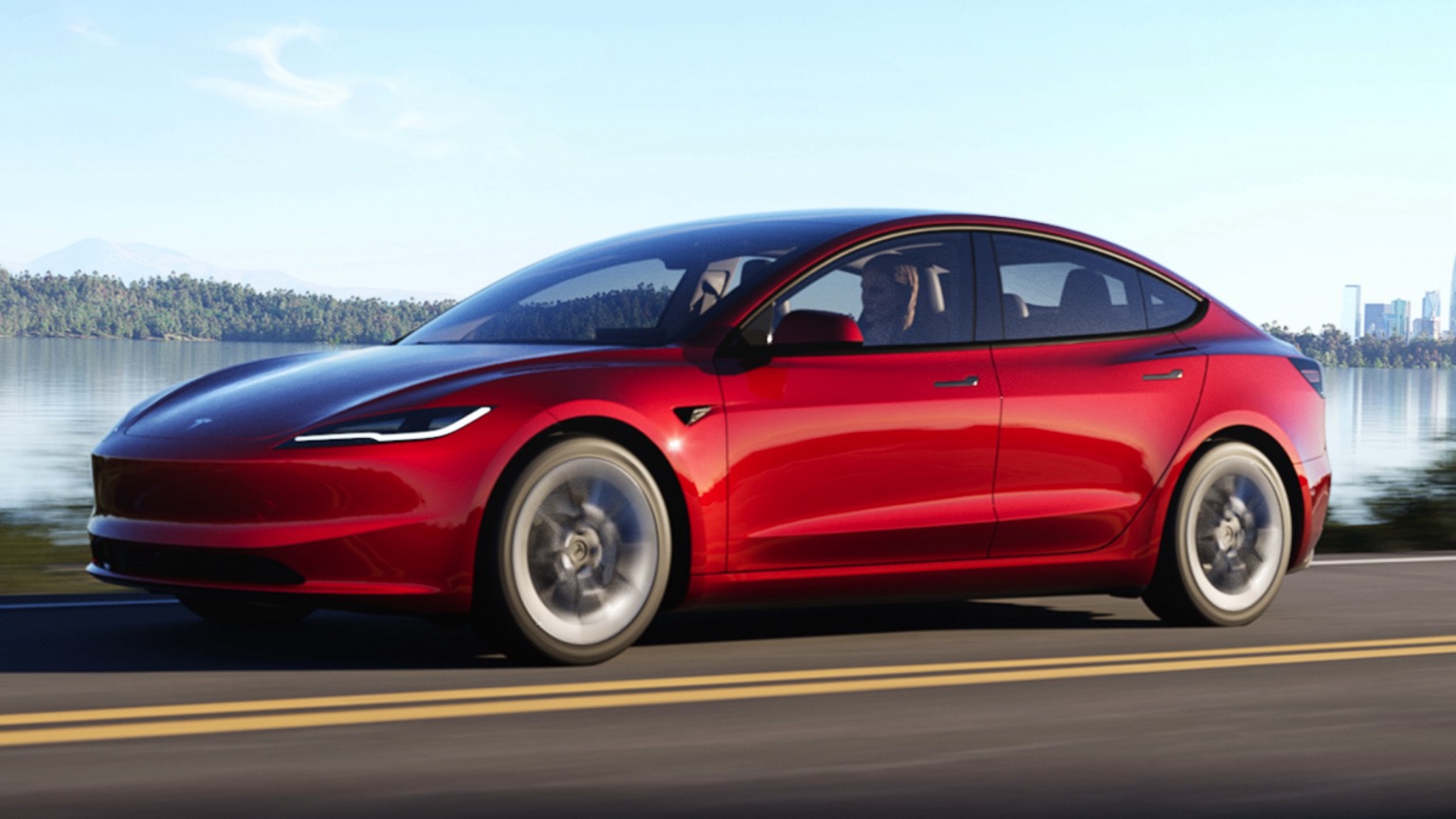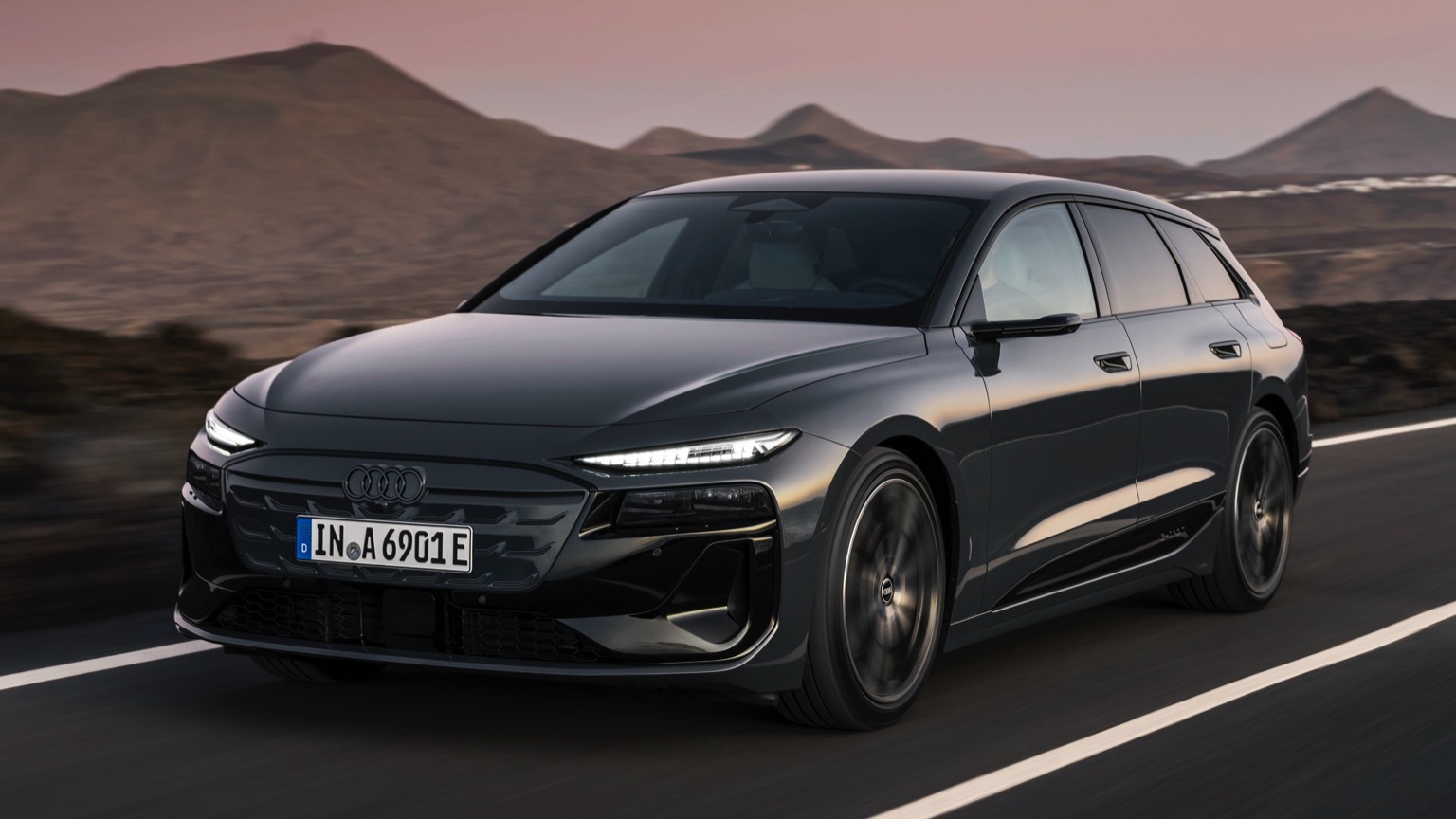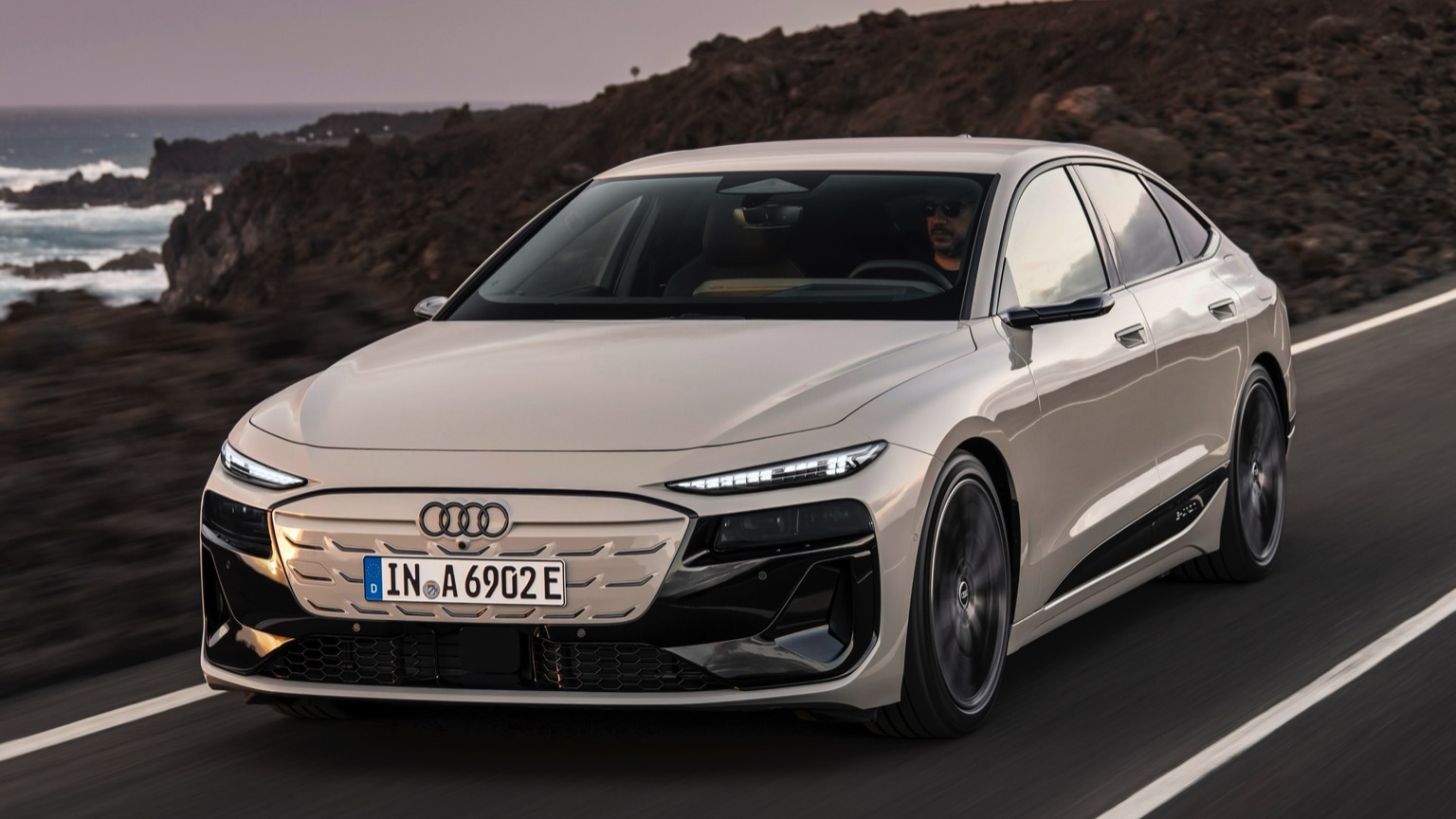Driving Range
In short, how many miles you can travel on a full charge. Is length important? Let’s not open that can of worms…
Efficiency
How many kWh of charge are needed to travel a set distance. The fewer needed, the more efficient your EV is. Easy!
Battery
The bigger the battery, the more power it can hold. In essence, fewer stops needed to top up your charge. Ahh, simplicity!
Top Speed
The maximum speed you can reach with your foot pressed hard to the floor. Important when escaping a zombie apocalypse, we assume.
Seats
Well, you don’t want to have to leave anybody at home… or do you?
Body
From stylish SUVs and compact crossovers, to curvaceous coupes and handy hatchbacks, there’s a perfect shape for everyone!
Isofix
The safe way to attach a child seat. Typically, these are hidden in the join between the back seats, alongside the crumbs from your last meal deal.
Safety Rating
A measure that considers the amount of safety kit installed, how a vehicle performs in crash testing and how safe it is for both pedestrians and cyclists.
| City - Cold Weather | 280 miles |
| Highway - Cold Weather | 200 miles |
| Combined - Cold Weather | 240 miles |
| City - Mild Weather | 405 miles |
| Highway - Mild Weather | 255 miles |
| Combined - Mild Weather | 315 miles |
Indication of real-world range in several situations. Cold weather: 'worst-case' based on -10°C and use of heating. Mild weather: 'best-case' based on 23°C and no use of A/C. For 'Highway' figures a constant speed of 110 km/h is assumed. The actual range will depend on speed, style of driving, weather and route conditions.
| Charge Port | Type 2 |
| Port Location | Rear Side - Right |
| Charge Power | 11 KW AC |
| Charge Time | 10hr 30m |
| Charge Speed | 27 mph |
| Fastcharge Port | CCS |
| FC Port Location | Rear Side - Right |
| Fastcharge Power (max) | 209 |
| Fastcharge Time | 22m |
| Fastcharge Speed | 530 mph |
General Charging (0 - 100%)
Charging is possible by using a regular wall plug or a charging station. Public charging is always done through a charging station. How fast the EV can charge depends on the charging station (EVSE) used and the maximum charging capacity of the EV
| Charging Point:Charging Point | Power:Power | Time:Time |
|---|---|---|
| Charging Point:Wall Plug | Power:2.3 kW | Time:49hr 15m |
| Charging Point:1-Phase 16A | Power:3.68 kW | Time:30hr 45m |
| Charging Point:1-Phase 32A | Power:7.36 kW | Time:15hr 15m |
| Charging Point:3-Phase 16A | Power:3.68 kW | Time:10hr 30m |
| Charging Point:3-Phase 32A | Power:7.36 kW | Time:10hr 30m |
Rapid Charging (10 - 80%)
Rapid charging enables longer journeys by adding as much range as possible in the shortest amount of time. Charging power will decrease significantly after 80% state-of-charge (SoC) has been reached.
| Charging Point:Charging Point | Average Power:Average Power | Time:Time |
|---|---|---|
| Charging Point:CCS 50 | Average Power:50 kW | Time:1hr 25m |
| Charging Point:CCS 150 | Average Power:149 kW | Time: 28m |
| Charging Point:CCS-300-DC | Average Power:194 kW | Time: 22m |
| EVDB Real Range | 280 miles |
| EVDB Vehicle Consumption | 343 Wh/mi |
| EVDB CO2 Emissions | 0 g/mi |
| EVDB Vehicle Fuel Equivalent | 1.18 l/100mi |
| WLTP Real Range | 360 miles |
| WLTP Rated Consumption | 32 Wh/mi |
| WLTP Vehicle Consumption | 26.7 Wh/mi |
| WLTP CO2 Emissions | 0 g/mi |
| WLTP Rated Fuel Equivalent | 1.26 l/100mi |
| WLTP Vehicle Fuel Equivalent | 1.52 l/100mi |
| Acceleration 0 - 100 km/h | 9.4 sec |
| Top Speed | 115 mph |
| Electric Range* | 280 miles |
| Total Power* | 150 kWh |
| Total Torque* | 350 Nm |
| Drive | Rear |
| Safety Rating | |
| Rating Year | 2023 |
| Adult Occupant | 84% |
| Child Occupant | 88% |
| Vulnerable Road Users | 76% |
| Safety Assist | 83% |
For more details on the safety rating of this vehicle, visit euroncap.com
| Nominal Capacity | 99.8 kWh |
| Battery Type | Lithium-ion |
| Number of Cells | 152 |
| Architecture | 800 V |
| Useable Capacity | 96 kWh |
| Cathode Material | NCM |
| Pack Configuration | 152s3p |
| Nominal Voltage | 552 V |
| Length | 5010 mm |
| Width | 1980 mm |
| Width (with mirrors) | 2263 mm |
| Height | 1755 mm |
| Wheelbase | 3100 mm |
| Weight Unladen (EU) | 2501 kg |
| Gross Vehicle Weight (GVWR) | 3070 kg |
| Max. Payload | 644 kg |
| Cargo Volume | 333 L |
| Cargo Volume (Max) | 2393 L |
| Cargo Volume Frunk | 90 L |
| Roof Load | 65 kg |
| Tow Hitch Possible | Yes |
| Towing Weight Unbraked | 450 kg |
| Towing Weight Braked | 900 kg |
| Vertical Load Max | 45 kg |
| Seats | 7 |
| Isofix | Yes, 4 seats |
| Turning Circle | 12.4m |
| Platform | HMG E-GMP |
| Car Body | SUV |
| Segment | F |
| Roof Rails | Yes |
| EV Dedicated Platform | Yes |
* = estimated value. Average energy consumption and range based on moderate drive style and climate. Real-life values may differ significantly. Pricing information might not be actual for some regions. No rights can be derived from the information on this site.
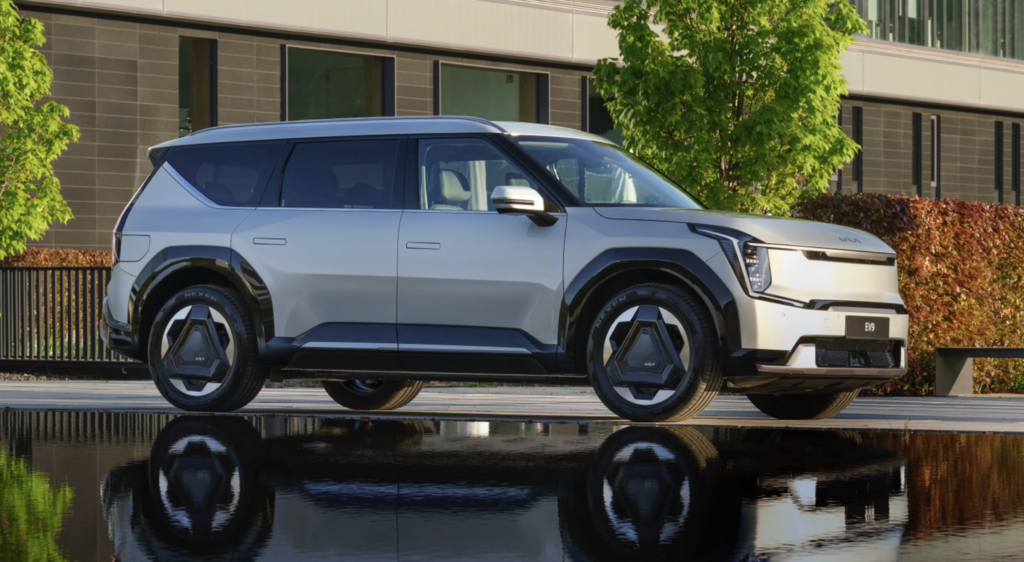
Kia EV9 99.8 kWh RWD Charging Guide
At the heart of this revolutionary vehicle is a visionary approach that seamlessly intertwines form and function. The EV9’s futuristic design is a testament to Kia’s forward-thinking ethos, challenging traditional notions of what an electric vehicle can be. Its sleek lines, aerodynamic contours, and attention to aesthetic detail not only make a bold visual statement but also contribute to the vehicle’s overall efficiency and performance.
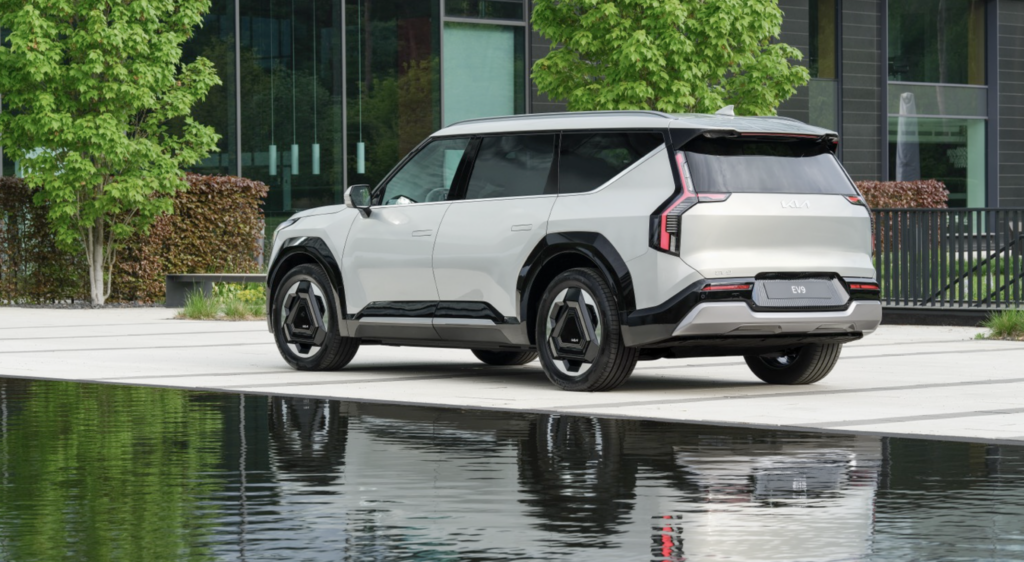
How to charge the Kia EV9?
Charging the Kia EV9 is designed to be efficient and convenient, catering to the needs of modern electric vehicle owners. Most EV drivers opt for the ease of using a home charging point. The EV9 can be charged at home using a Level 2 home charger. This method allows owners to conveniently charge their vehicle overnight, ensuring it is ready for daily use.
Whilst on the go, the EV9 is compatible with public charging stations, including fast-charging options. The EV9 is also compatiable for the extensive Tesla supercharge network for fast charging on the move.
How long does it take to charge the Kia EV9 99.8 kWh RWD?
13 hours and 34 minutes*
*Using a standard 7kWh charger, such as zappi it would take 13 hours and 34 minutes to fully charge your 95kWh battery. The Kia EV9 99.8 kWh RWD also has the capability to be charged on the 22kWh zappi, which would reduce this charging time down to 10 hours and 15 minutes.
What is the range of the Kia EV9 99.8 kWh RWD?
275 miles**The range of the Kia EV9 99.8 kWh RWD with the 95kWh battery, differs between 200 miles and 400 miles depending on your driving conditions and the type of road. Typically, the average range from a full charge will be around 275 miles.
How much does it cost to charge the Kia EV9 99.8 kWh RWD?
£7.13**It could cost just £7.13 to charge the Kia EV9 99.8 kWh RWD, with the 95kWh battery, when fully utilising off-peak charging on an Octopus Intelligent tariff, at 0.075p/kWh. In contrast, peak charging on a standard rate of 0.34p/kWh can cost £32.30 to charge up.
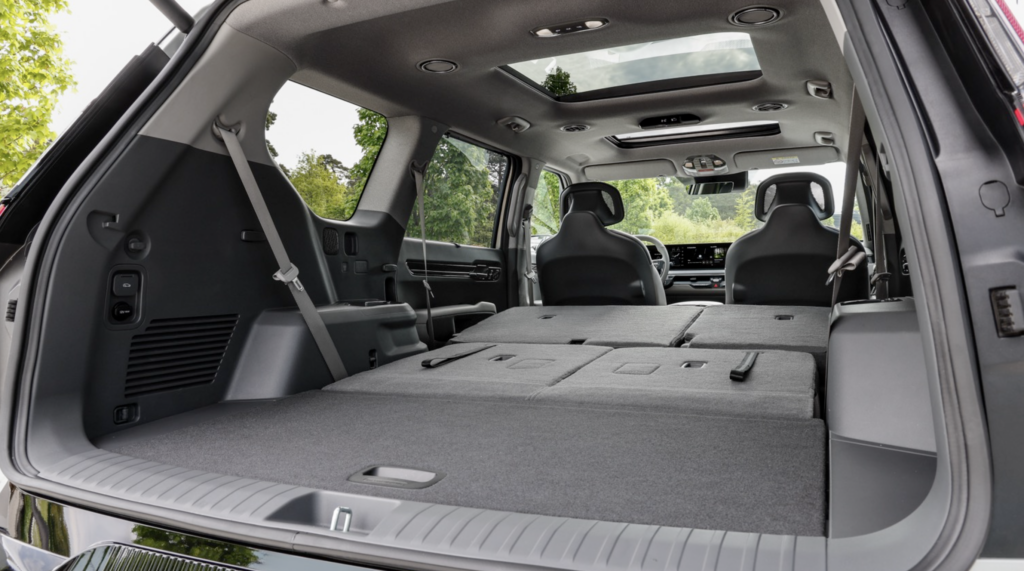
Where is the Kia EV9 made?
Kia is known for its global production strategy, and despite being a Korean manufacturer, Kia now makes all of the EV9’s in West Point, Georgia, US. The Kia EV9 is one of the first EVs to be manufactured at the $200 million manufacturing plant.
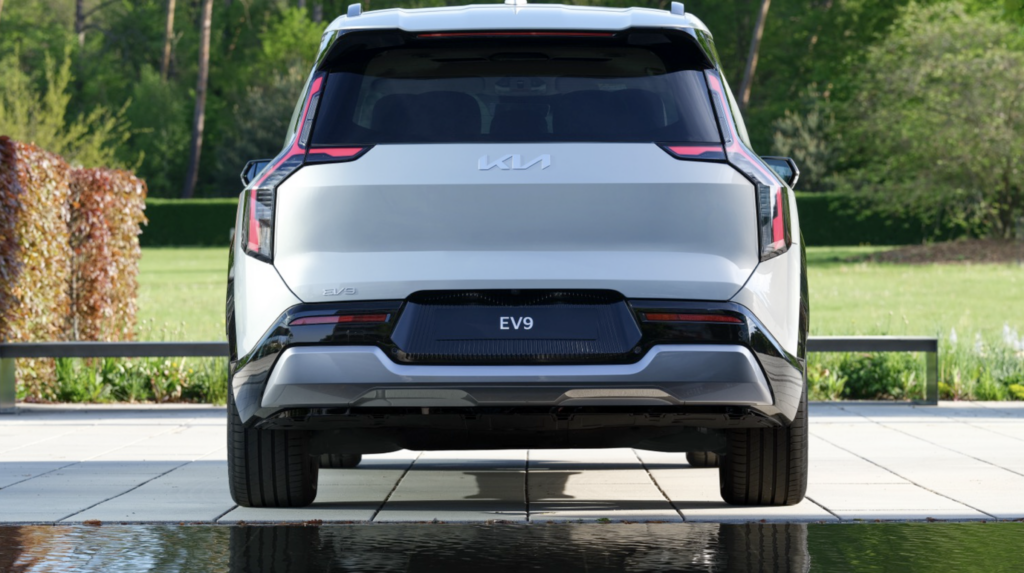
Where is the charging port on the Kia EV9?
The Kia EV9 features a Combined Charging System (CCS) socket conveniently located on the right-hand side of the vehicle. This design facilitates ultra-fast charging capabilities, reaching speeds of up to 210 kW. The vehicle achieves this remarkable charging efficiency through a versatile multi-input charging system, ensuring compatibility with both 400V and 800V infrastructure.
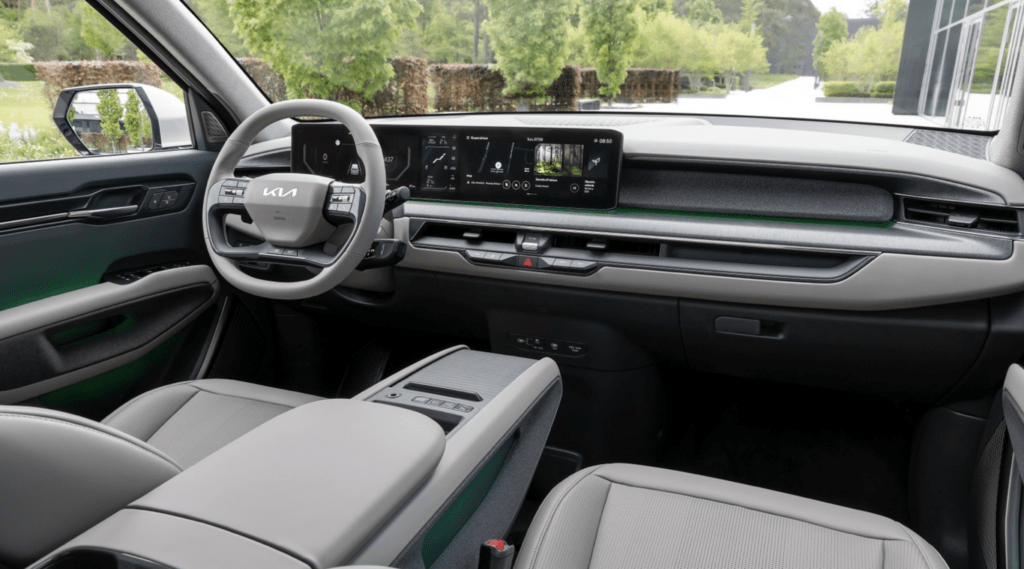
Next generation EV.
The Kia EV9 represents Kia’s bold step into the future of electric mobility, promising a driving experience that seamlessly blends innovation and sustainability. As the EV9 hits the roads, it is poised to reshape the landscape of electric vehicles, setting new standards for the industry and inspiring a new generation of eco-conscious drivers.
Similar Electric Vehicles

